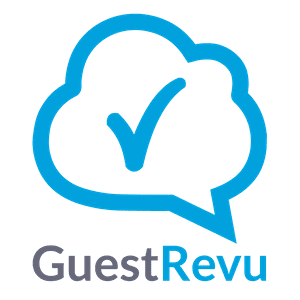 Reaching out to guests to learn what they want from hotel visits used to be a straightforward matter of sending surveys or asking during checkout. Even then, not every guest wanted to stay and chat or take the time to fill out a survey form. It left hotel managers guessing about customer service strategies. Thankfully, now there’s an easy way to get more direct answers.
Reaching out to guests to learn what they want from hotel visits used to be a straightforward matter of sending surveys or asking during checkout. Even then, not every guest wanted to stay and chat or take the time to fill out a survey form. It left hotel managers guessing about customer service strategies. Thankfully, now there’s an easy way to get more direct answers.
In the age of modern technology, people use the internet for most of their hotel needs. Potential guests research reviews, book visits online and use hotel websites to see how they can make their stay more pleasant. While they use websites and apps, they leave behind a trail of digital data that is a goldmine for hoteliers who want to make their property more successful.
Read on to learn five useful insights hotels can get from analyzing guest data. Once management knows how to translate the data into actionable information, strategizing hotel improvement is a much less complicated issue to tackle.
1. Study where guests go
Guests used to arrive at hotels with a map in one hand and a suitcase in the other. Maps showed them how to get around the city and where the best venues were. Now, most people use GPS-enabled devices. Hotel management can use this opportunity to present a new program where guests use handheld GPS navigators for local walking tours.
When they return the navigators, the data will indicate where they went and what they were interested in. It may change which promotional brochures are located by the front door, which businesses hotels partner with and what kinds of nearby activities will draw in more first-time guests.
2. Watch booking data
Before guests arrive for a trip, they must book a room online. Whether they do this through their smartphone or a computer, they create a history of browsing data that shows what they clicked on the most. Whatever gets the most clicks, such as hotels with a comparable price range or amenities, lays the foundation for what guests want in their stay.
Management can divide this data by age range to narrow down which audience their property attracts and where they can improve. Using a program like Google Analytics will also show the most common keywords used in searches to point out what guests want or what questions they have.
3. Analyze guest purchases
Another important source of revenue is how guests spend their money once they’ve moved into their room.
Relevant data comes from on-site amenities like spas and restaurants, but also off-site partnerships with local businesses. Once management knows where guests are most likely to spend their money, they can create and send targeted ads on apps and digital platforms that pertain to those interests. Ads may show information with upcoming programs or promotions that relate directly to the guest’s proven purchases.
4. Store guest emails
Hotel brands get a guest’s email through direct bookings, so save them in a digital library to connect guest activity across different channels. Guests may use their email to sign up for hotel promotions, offers or events. This shows patterns related to what they prefer.
After there’s enough data to display reliable insights, management can create email campaigns tailored to their guests’ interests so they’re aware of future promotions and are more likely to book again.
5. Examine online reviews
Guest reviews are still an essential part of establishing a positive reputation and attracting new guests. It’s a form of volunteered guest data, which hoteliers can combine with reputation management software to pick up reoccurring negative keywords. Team members can respond to the most common negative reviews and measure the hotel’s performance based on the increase or decrease of positive impressions gathered by the software.
Embrace each opportunity
Technology presents new opportunities for hotel managers to analyze guest data and improve marketing efforts and outreach. Embrace these digital routes to see which work best and which ones reveal insights that change how guests enjoy their experience during each visit.


















